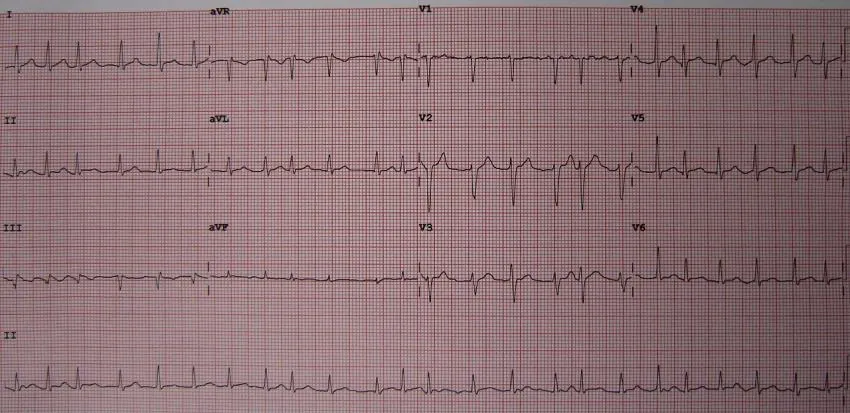
Unlocking the Genetic Code: Increased Risk of Intracranial Hemorrhage Linked to Anticoagulant Use
2025-09-01
Author: Nur
Groundbreaking Study Reveals Genetic Factors in Stroke Risk
In a compelling new study featured in JAMA Neurology, researchers have discovered that patients with atrial fibrillation who are treated with the anticoagulant Eliquis (apixaban) and carry the APOE e4 genetic allele are at a heightened risk of suffering intracranial hemorrhage—a rare but serious form of bleeding within the skull. This research sheds new light on the intricate relationships between genetics and treatment outcomes.
Research Team and Methodology
Led by Dr. Santiago Clocchiatti-Tuozzo, a resident in the Department of Neurology, the study was a key part of his T32 Postdoctoral Research Fellowship in Geriatric Epidemiology. Under the guidance of prominent mentors Dr. Guido Falcone and Dr. Thomas Gill, the team embarked on this important examination to further understand the implications of the APOE e4 allele.
The Connection Between Atrial Fibrillation and Stroke Risks
Atrial fibrillation, characterized by an irregular heart rhythm, can significantly increase the risk of ischemic strokes, as it often leads to the formation of blood clots. Eliquis is frequently prescribed to mitigate this risk, but this study reveals a potential downside for specific genetic profiles.
Understanding the Risks of Eliquis
Dr. Clocchiatti-Tuozzo emphasizes that while the risk of intracranial hemorrhage is rare, it remains one of the most feared complications associated with Eliquis. The study's findings suggest that those with the APOE e4 genotype may need to be more cautious when using this medication.
Broader Implications for Science and Medicine
The ramifications of this research extend beyond stroke prevention. The APOE e4 allele is known to be the most significant genetic risk factor for Alzheimer's disease. By understanding its link to bleeding risk in anticoagulated patients, researchers can refine risk assessments and improve personalized treatment plans for a variety of conditions.
Towards Personalized Medicine
As Dr. Clocchiatti-Tuozzo concludes, this vital study lays the groundwork for more tailored risk assessment methods that could better serve both patients at risk of stroke and those with potential Alzheimer's disease. With further research, we could revolutionize how genetic factors influence treatment strategies in the future.



 Brasil (PT)
Brasil (PT)
 Canada (EN)
Canada (EN)
 Chile (ES)
Chile (ES)
 Česko (CS)
Česko (CS)
 대한민국 (KO)
대한민국 (KO)
 España (ES)
España (ES)
 France (FR)
France (FR)
 Hong Kong (EN)
Hong Kong (EN)
 Italia (IT)
Italia (IT)
 日本 (JA)
日本 (JA)
 Magyarország (HU)
Magyarország (HU)
 Norge (NO)
Norge (NO)
 Polska (PL)
Polska (PL)
 Schweiz (DE)
Schweiz (DE)
 Singapore (EN)
Singapore (EN)
 Sverige (SV)
Sverige (SV)
 Suomi (FI)
Suomi (FI)
 Türkiye (TR)
Türkiye (TR)
 الإمارات العربية المتحدة (AR)
الإمارات العربية المتحدة (AR)